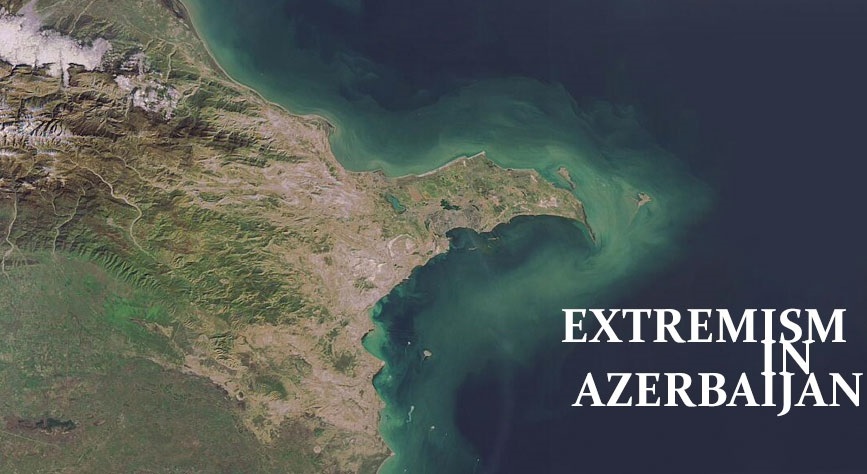AhlulBayt News Agency - The former Soviet Union witnessed rise of a united front of religious radicalism outstretching from the North Caucasus to the Central Asia region, and included also the Muslim-inhabited regions of Russia itself. The front in past few years, particularly after eruption of the Syrian crisis, has begun to leave negative impacts on the Central Asia’s security conditions. Upon outbreak of the conflict in Syria, the Western powers, assisted by their regional allies, have begun to fan the disputes in Syria through guiding and equipping the terrorist groups under the excuse of supporting the opposition groups to the Syrian President Bashar al-Assad. Meanwhile, the countries of Eurasia region secured a considerable share of the terrorists flowing into Syria. Coming from Russia, the Central Asian states and Caucasus region to Syria, the terrorists hold Wahhabist–Salafist orientations and are advocates of ISIS and Al-Qaeda terrorist organizations’ ideologies.
The terrorists through a safe cover of Western intelligence agencies are moved out of their countries and are transferred to Syria and are engaged in devastating war against the legitimate Damascus government.
The considerable point about the transfer of the terrorists from their countries to Syria is that the Syrian crisis has given rise to a kind of international terrorism. The odds are these organized international terrorists move to other countries or regions and cause chaos after they come back from Syria’s battlefields. Such a possibility poses a potential threat to Russia, Central Asian states and also the Caucasus region. Meanwhile, Azerbaijan is not secure against the threat either.
Rise of takfiri movements in Azerbaijan
Although the Shiite Muslims account for a majority of Azerbaijan’s population, and there were no Wahhabists before collapse of the Soviet Union in the country, during the past few years the Wahhabists have grown notably in Azerbaijan, especially in areas of the country sharing borders with Russia. The Wahhabists during the past two decades, with fundings from Saudi Arabia and other Arab countries, started activity in Azerbaijan, particularly northern regions of the country.
Meanwhile, Saudi Arabia plays crucial role in providing fundings and training and equipment to the Wahhabi groups that found place and strengthened in two sides to Russian border with Azerbaijan.
Following breakup of Soviet Union, the Wahhabi circles, having financial backing of Saudi Arabia and Qatar, got active in a set of Azeri regions like Zaqatala, Qusar, Baku the capital, Salyan and Neftchala. They also built a mosque in Baku. The Wahhabists buy taxis and give them to unemployed young people on the condition of them joining Wahhabism. They also give loans to the poor families, trying to find a way inside the Shiite community there.
Furthermore, Saudi missionaries, under the guise of charity activities, are busy promoting Wahhabi ideology among the poor and displaced Karabakh communities. One of their ways to boost influence is to attract the young people to get religious education in Saudi Arabia. While the Wahhabists were weak in the past and were careful not to call attention of the public, now their activities, in a country which has chosen to be secular and move ahead according to the Western lifestyles, could present a risky tendency.
Some of Azeri nationals have joined the radical and Wahhabi groups and went to Syria for the sake of livelihood. Additionally, there are strong links between the Azeri Wahhabists and the opposition groups in Syria. Azerbaijan’s Wahhabists have shown solidarity with those of Dagestan and North Caucasus, indicating that they aimed at establishing an Islamic caliphate which would cover Azerbaijan and some parts of North Caucasus.
There are no accurate figures of the Wahhabists went to Syria from Azerbaijan but some sources put the number at over 250, mostly members of ISIS and al-Nusra Front, Al-Qaeda’s Syrian branch. Some networks, holding links to Saudi Arabia and having Riyadh’s financial and diplomatic support, have transferred to Syria with a Turkish support a number of Azeri citizens, specifically from areas close to North Caucasus like Qusar, Zaqatala and Balakan.
After terrorist operations started in Syria, Baku’s government, with a US advice, has become member of the pro-Western government which makes up the Friends of Syria Group, and thus contributed with a large sum to the terrorists’ activities in Syria. Therefore, so far Baku not only didn't block activities of the Wahhabists but also in some cases there has been close relationship between the Wahhabists and Azerbaijan’s State Committee for Work with Religious Organizations.
This is coming while it is believed that Azeri Wahhabists fighting in Syria pose dangers to Azerbaijan’s stability, because they are extremist groups gathered together in Syria with political and financial support of some countries. They could be risky for Azerbaijan after they come home from battlefields if the government fails to identify them.
Although Baku’s government pretends it is not much aware of the issue, it is widely known the transfer of the Azeri Wahhabists to fronts in Syria comes with Baku’s approval.
Wahhabism has no roots in the Shiite-inhabited South Caucasus, especially among the Shiite Azeris. However, it began to develop and recruit members from the Sunni minorities using Saudi and other countries’ support.
Meanwhile, while Azerbaijan’s official organizations have moved seriously to impair Shiite Islam in the face of Wahhabists, Wahhabism has turned into a threat to Azerbaijan’s stability.
/129
source : Al Waqt
Wednesday
4 May 2016
9:18:10 AM
751946

Meanwhile, the countries of Eurasia region secured a considerable share of the terrorists flowing into Syria. Coming from Russia, the Central Asian states and Caucasus region to Syria, the terrorists hold Wahhabist–Salafist orientations and are advocates of ISIS and Al-Qaeda terrorist organizations’ ideologies.
